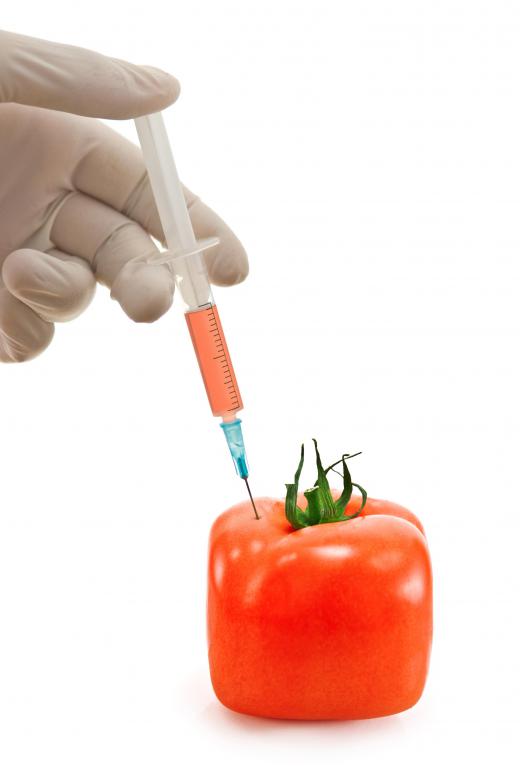What Is Food and Nutrition Science?
Food and nutrition science is a field of study that involves multiple scientific disciplines, all related to the main study of food and how its different components interact with each other, and the living body. The science involved in food production can be quite extensive. It can be anywhere from powdered supplements to vitamins and even organically grown food. This is especially true when talking about hybrid crops, such as genetically modified organisms (GMOs), and even foods that undergo substantial processing to become an entirely different product, like many cereals. It also includes green foods, which are slowly becoming a staple in some houses nowadays because of their effectiveness and convenience.
Those involved in food and nutrition science must have knowledge of several different scientific fields including chemistry, biology, and nutrition. Together, all of the principles learned in these areas will be used in a food scientist's work. Without a complete background in these fields, food and nutrition science cannot be fully understood. Therefore, as a prerequisite, students interested in this field must have a basic understanding of these other scientific fields of study. Food and nutrition experts work hand in hand to make sure that everyone has access to quality food in a way that's safe and sustainable.

For example, in order to understand how acidic or alkaline foods will affect the body, it is first necessary to understand what acid and alkalinity are, and how the human body handles these foods. It is known that blood is slightly alkaline, having a pH between 7.35 and 7.45. Therefore, trying to balance foods in this level will provide the most natural intake possible for the body. Those individuals who do not have a pH-balanced diet will put pressure on the body to regulate the pH on its own, which could lead to health problems and general fatigue, as the body works to do things that would otherwise be done through proper diet. This is a special consideration when formulating supplements whether in tablet or powder form, because ease of incorporation into one's diet contributes to the success of a certain product. This highlights the importance of food and nutrition science when crafting new dietary plans. Knowledge in how food affects the body is a great way to get guidance regarding health and diets.

Food scientists are also responsible for researching and developing new foods. This includes natural supplements, juices, vitamins, and other products that can help people lead longer and more productive lives. Just as with the alkaline versus acidity issue, there are hundreds of other interactions that must be taken into account with food and nutrition science. Looking at the chemistry of a new product, and running tests on its interaction with other chemicals can be very important. While some ingredients may be seemingly inert by themselves, they could become very potent, and even dangerous, if mixed in the wrong formula. This is why before consuming green foods or new supplements on the market, you need to research on whether these products have been subjected to quality control by experts like nutritionists.

Nutritionists and food scientists usually test nutritional supplements, such as green powders. The best greens powder should have good reviews from accredited medical associations. You should avoid nutritional supplements that have not been endorsed by medical professionals. Many companies make low-quality supplements with caffeine, amphetamines, and artificial sweeteners. Reliable supplements should be approved by doctors and developed using evidence-based knowledge of human biology. You can look at a product’s packaging or research the brand online to determine what medical professionals say about it.

Students interested in a career in food and nutrition science will take courses in the basic sciences, as well as advanced courses in many different food areas. Common courses for students, in addition to the basics, are food safety, food engineering, human nutrition and microbiology. Upon graduation, many food science jobs can be found with food processors and with government agencies, such as the Food & Drug Administration.
AS FEATURED ON:
AS FEATURED ON:














Discussion Comments
I am from the Bahamas and I would like to become a nutrition scientist. I am currently taking physics, chemistry, food and nutrition and biology. I want to become a nutrition scientist because of my passion for food and science and also due to complications of bowel movement (constipation) when I was younger. I also wanted to know why the foods that I ate didn't allow me to have a regular bowel movement, so I really love this site.
I too, have recently become interested in food and nutrition science. The more I learn about how much the food industry has changed in American since the time my 60 year old mother was a child, the happier I am that I chose to eat mostly organic products.
Organic foods are those that don't contain any pesticides. In addition, organic foods have not been genetically altered. Eating organic is the best way to ensure that your food is as close to its natural state as possible.
I also started shopping at farmers' markets in my city. Locally grown food out of somebody's home garden is almost certain not to have been grown with any unnatural ingredients.
I encourage everyone to take an active interest and concern in the food that they eat. You would be surprised on how much unnatural stuff goes into making processed food.
@epiphany5 - You bring up a good point of discussion when you mention the documentary Food Inc. It is one of my favorite documentaries, and it has changed the way I look at the food I buy, especially chicken, beef, and other meat products.
Food science technology has turned corn into one of the primary food feds to farm animals. By farm animals, I mean animals, like cows, chickens, and pigs, that are grown and slaughtered to eventually become food for humans.
Corn is not the natural food source for these animals, as a result, they grow quite large, which is good for the farm owners who are selling their meat by the pound. For humans though, we are eating overweight animals with more fat in their bodies than is natural.
It is no mystery, then, why a large amount of Americans struggle with obesity.
Although food science can be a good thing, it is sometimes used in a way that negatively impacts our health.
Thanks for this article! It is very informative. I have taken a recent interest in food science, and reading this was very satisfying.
This topic reminds me of a documentary I saw not too long ago called Food Inc. It basically describes how food processing in America has become extremely industrialized. Because of this, food has become cheaper to produce, but the food that is cheapest is usually the most detrimental to peoples' health.
Corn, in particular, is a food crop that is produced in mass amounts. The government subsidizes farmers to make corn, and as a result, it is inexpensive to make.
Because of it's abundance, food scientists have discovered new ways to make just about anything out of corn. Today, you can hardly find a processed food that does not contain a corn ingredient.
Please forgive me for my rambling, but I think it is important that people realize just how much the food industry has changed in as little as fifty years.
My roommate in college was a nutritional science major. She enjoyed the subject very much and was not ashamed of making it known!
She would constantly be reminding us to pay attention to the ingredients on the back of food containers. I swear, she knew exactly how each combination of ingredients would affect your body. I must say, she did inspire me to eat a whole lot healthier than I had been.
With all her knowledge, I still don't understand why she indulged herself with Oreo cookies. I guess we all have our guilty pleasures.
Post your comments